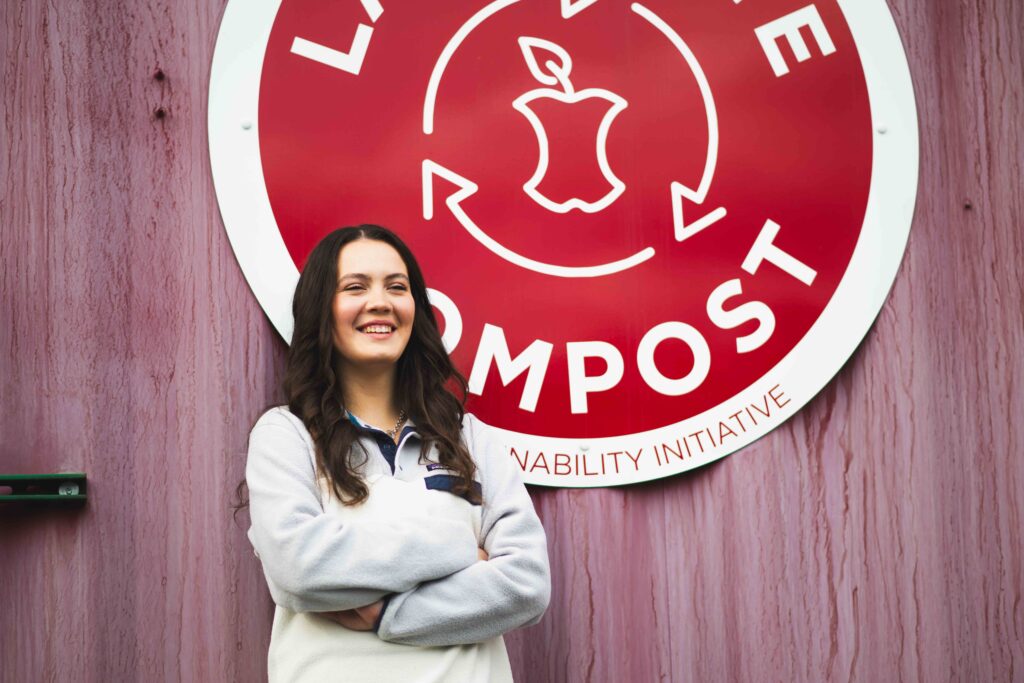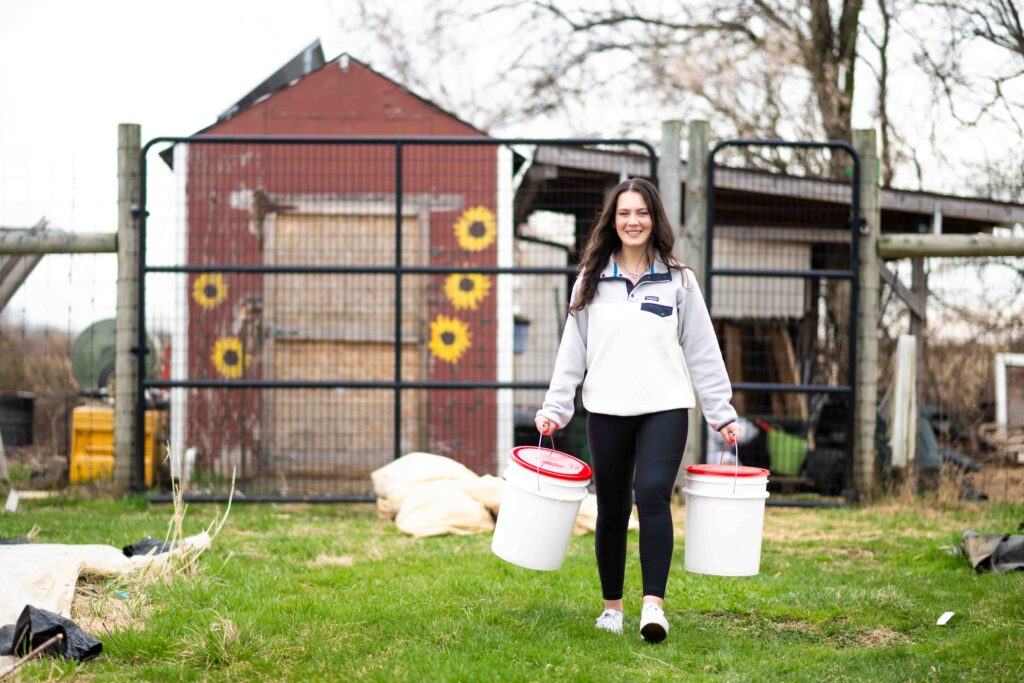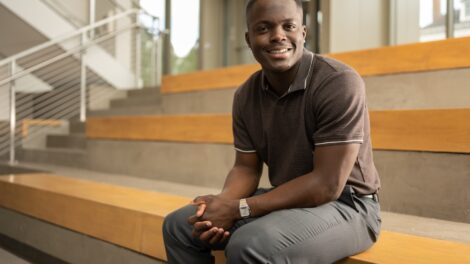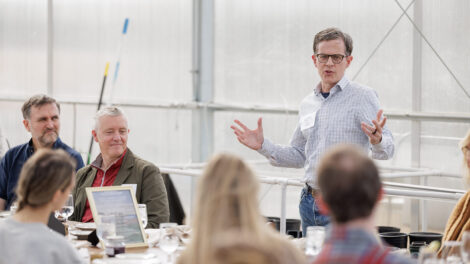Composting by the numbers

By Madeline Marriott ’24
When it came time to choose a topic for her honors thesis, Jacqueline Britton ’25 decided to write what she knows: the Office of Sustainability’s composting program.
Britton has been both an intern with the composting program and a Sustainability Impact Fellow concentrating on reducing waste across campus. As a policy studies and economics student, her primary research focus has become the business of sustainability.
“Those roles were great opportunities to be introduced to all the different operations and initiatives that go into making a college campus sustainable,” Britton says. “I did a smaller project looking at composting on college campuses in an environmental and resource economics class, and I decided to pursue it further as a thesis topic.”
Her honors thesis, advised by economics professor Hongxing Liu, is a cost-benefit analysis of the campus-wide composting program, which allows community members to add their food waste in designated buckets in dining halls. The food waste is collected by a student team, brought to an on-site composting vessel, and turned into compost to be used at LaFarm, Lafayette’s 3-acre farm and community garden.
Through analysis of data from the Office of Sustainability and a comprehensive survey designed by Britton, the goal of the project is to determine the value of the composting program through a variety of metrics. Using data such as budgets, invoices, and food weight measurements, Britton can calculate how much the College saves by composting rather than transporting food waste to a landfill.
The bulk of her work, however, comes from qualitative survey data. Britton’s survey is designed to measure both participants’ stated preference and revealed preference. The former is disclosed by directly asking participants to assign a monetary value to the composting program, in this instance by asking them how much they would hypothetically be willing to pay to use the program.
Revealed preference, a trickier metric to quantify, is measured by gauging participants’ interactions with the program: how often they utilize the compost buckets in dining halls, if they compost in their residences, etc.
Though Lafayette’s composting program is not profit-driven, Britton hopes there will be many uses for the data she collects.
“I see two avenues for this data,” she explains. “One is that it supports further sustainability initiatives on campus by showing that these are things worth investing in for the greater community. Also, it could be used by other institutions outside of Lafayette who are looking to implement their own composting programs.”

Conner Elliott-Knaggs, Office of Sustainability’s climate action and circularity manager, echoed the study’s importance for providing data to other colleges on their sustainability journeys.
“Other colleges reach out to me and ask about our composting program, particularly our vessel, asking about the value we’ve found from it,” he says. “Being able to really show its financial value is a great step in encouraging other schools, programs, and companies to invest in composting and integrate it into their systems.”
Furthermore, Elliott-Knaggs believes that the qualitative data from Britton’s project provides a valuable reminder of the true goals of composting programs.
“Composting efforts are not just buying a machine to save a certain amount of money,” he says. “There’s a human element that I think is really hard to quantify, but it’s important not to forget it when we’re discussing these larger-scale sustainability initiatives.”
“The compost produced is used at LaFarm to improve soil quality,” Elliott-Knaggs continues. “LaFarm produces food for the College, and it is part of ongoing efforts to incorporate circularity. Knowing that composting efforts lead to fresh healthy food on their plates can be empowering to students.”
“This research is quantitative and student-driven,” Liu adds. “It not only provides a more comprehensive understanding of sustainability on campus, but also emphasizes how the community cares about composting and provides insights for future actions that the College may or may not take.”
According to Liu, Britton’s project joins the growing trend of interdisciplinary research in economic circles.
“In the field of economics, we’re starting to see more and more of this interdisciplinary work that combines the knowledge of multiple disciplines, which means it can have a bigger impact on society,” Liu says. “Specifically at Lafayette, this kind of research is generating more interest.”
Britton is one of several Lafayette students who presented research at this year’s National Conference on Undergraduate Research (NCUR) in April.

